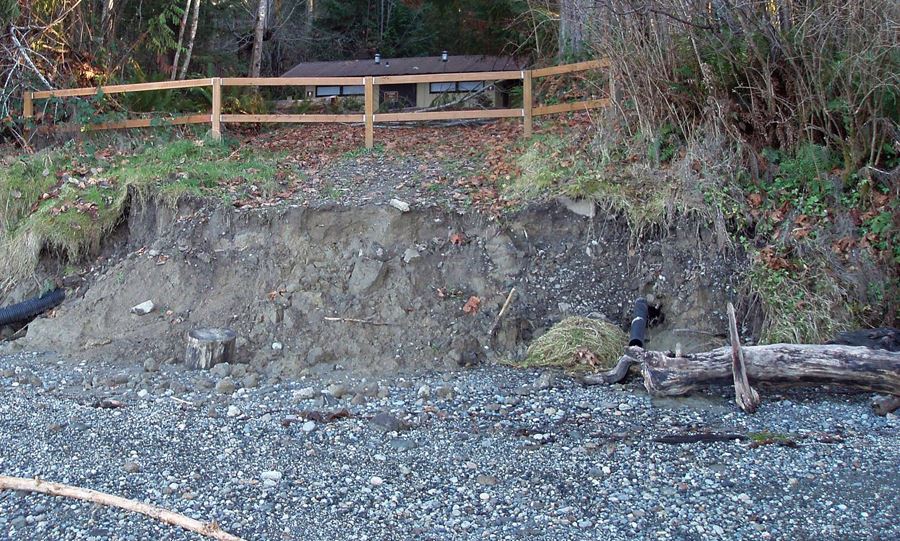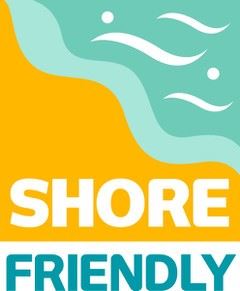
These courses are endorsed by the Shore Friendly program and the content is consistent with Shore Friendly recommended practices. This course is offered as part of a series of six courses related to Alternatives to Bulkheads. At this time the first two courses are being offered through CTP. Courses 3 – 6 are anticipated to be offered over the next few years.
This class addresses local, state and federal permitting associated with the implementation of alternatives to bulkheads or armoring shoreline projects. It is especially geared toward shoreline planners, consultants, and marine contractors who are interested in the permits required to restore shorelines to natural conditions or to implement projects considered “soft” alternatives to bulkheads or armoring. This class will help you understand which permits are required for different activities in the marine shoreline and how they relate to different levels of government. You will learn whom to contact, what steps are involved in the permit process, what to include in a permit package, and how the different permits relate to one another.
Permits reviewed in this class include: local government shoreline master program permits, Washington Department of Fish and Wildlife Hydraulic Project Approval, US Army Corp of Engineer permits, FEMA and floodplain permits, and Endangered Species Act review by National Marine Fisheries Service, and US Fish and Wildlife Service. Additional permit-related issues include Department of Natural Resources (DNR) leases and cultural resources reviews and coordination with the Department of Archeology and Historic Preservation (DAHP). The role of tribes in the permit process is also included.
This class will be held virtually over two half-days from 9 am - 12 pm.
NOTE: The ALTERNATIVES TO BULKHEADS: Course #1 - General Concepts Related to Shorelines and Stabilization is a recommended prerequisite for this course.
Sydney Fishman is the Shoreline Armoring Planning Associate at the Washington Department of Ecology. Her work focuses on the implementation of shoreline stabilization regulations on Puget Sound. She assists local governments and Department of Ecology staff with review of shoreline stabilization projects under local Shoreline Master Programs, and supports regional efforts to address shoreline armoring and improve the health of Puget Sound shorelines. A goal of her work is to increase the use of soft shore methods and other alternatives to hard shoreline armoring, and to encourage the removal of hard armoring where possible. She holds a Master of Environmental Management degree from Duke University.
Jennifer Rotsten graduated from Huxley College of the Environment in 2003 with a degree in Environmental Economics and came on board that same year to handle project permitting. Since then, she continues to coordinate the design of projects based on the local, state and federal regulations applicable to the project along with contract and submittal requirements for projects. She currently holds a seat on the Hydraulic Code Implementation Citizen Advisory Group in Olympia for Washington State Department of Fish and Wildlife, representing contractors working within the water bodies of the State.
Diane Hennessey is a Senior Ecologist and Wetlands Specialist for the Washington State Department of Ecology on assignment with the Environmental Protection Agency. At EPA, she leads a federal and state multi-agency team that is evaluating and implementing a streamlined permitting process for beneficial marine shoreline projects. At Ecology, she worked with other government partners on Critical Areas Ordinance updates, Wetland delineation and Stream Ordinary High Water Mark delineations, Clean Water Act Section 401 permits, and wetlands policy development. She is also an instructor in the Wetland Science and Management Program at the University of Washington.
Nam Siu is an Area Habitat Biologist for the Washington Department of Fish and Wildlife where he implements the state’s Hydraulic Code through the review and permitting of hydraulic projects to protect fish and fish habitats. Before working for the state, Nam was an environmental consultant specializing in scientific SCUBA surveys of submerged aquatic vegetation and permitting of shoreline development projects in Puget Sound. Nam holds a M.Sc. in biology with an emphasis on oceanography as well as a dual B.Sc. in marine science and biology. Nam has contributed research on a wide variety of subjects ranging from deep sea ecology of chemosynthetic ecosystems to effects of climate change on Puget Sound microbial food webs.

These courses are endorsed by the Shore Friendly program and the content is consistent with Shore Friendly recommended practices. Participation in the training program does not indicate any form of endorsement of attendees by the Shore Friendly program, nor does participation assume subsequent work conducted by a participant adheres to Shore Friendly principles.
Funded wholly or in part by EPA under grant #PC-01J22301 (NEP Habitat Strategic Initiative).
